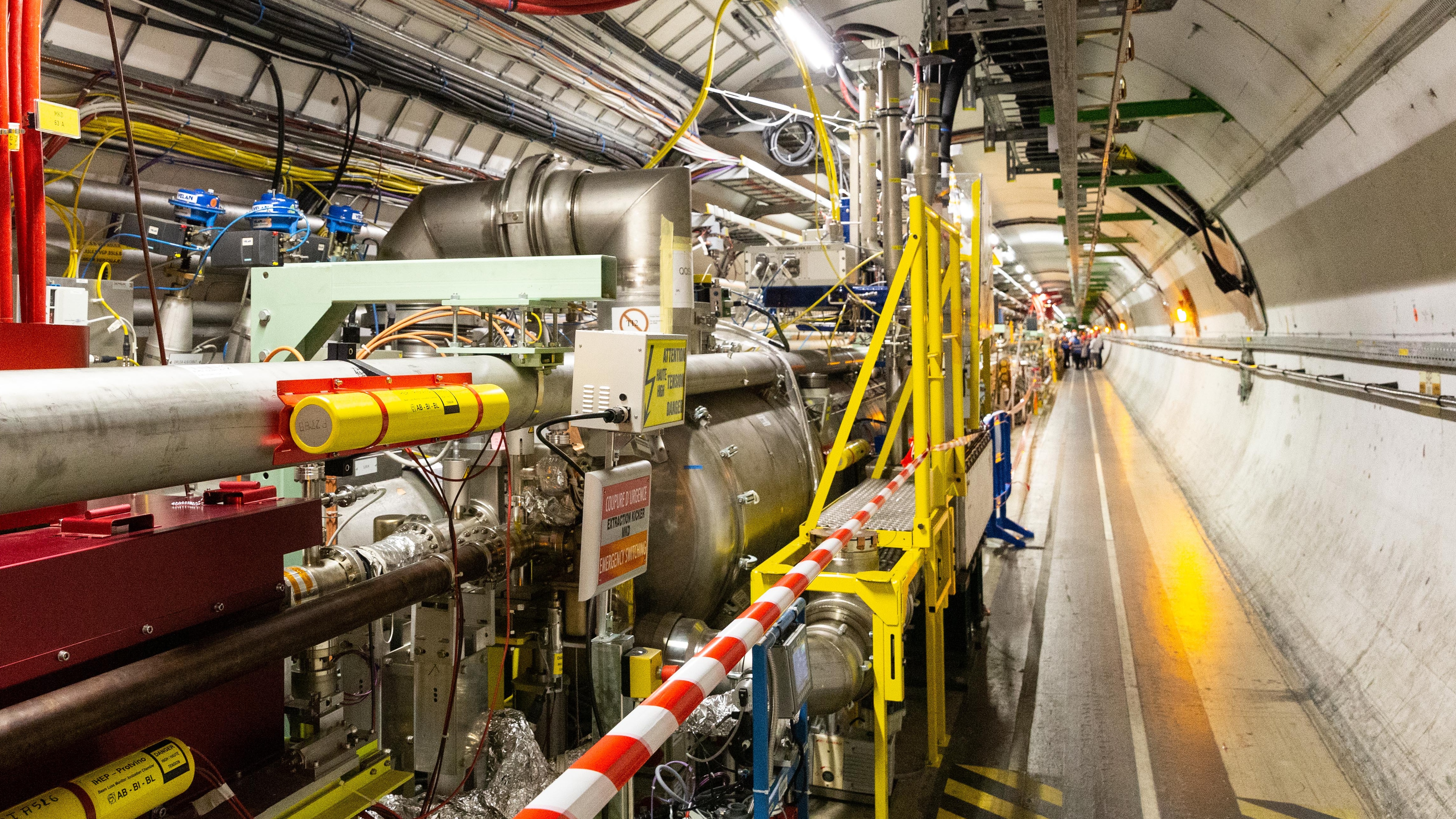The fifth force of nature
Unexpected behaviour of subatomic particle could change our understanding of the universe

A free daily email with the biggest news stories of the day – and the best features from TheWeek.com
You are now subscribed
Your newsletter sign-up was successful
A tiny subatomic particle appears to be disobeying the laws of physics in a way that scientists say could change our fundamental understanding of how the universe works.
The “particle celebre” is the muon, like an electron but far heavier, and “is an integral element of the cosmos” reports The New York Times.
Scientists have observed the particle behaving in a way that is significantly different to how it should under the accepted laws of physics, suggesting the particle is “sensitive to something” outside our current understanding of the universe.
The Week
Escape your echo chamber. Get the facts behind the news, plus analysis from multiple perspectives.

Sign up for The Week's Free Newsletters
From our morning news briefing to a weekly Good News Newsletter, get the best of The Week delivered directly to your inbox.
From our morning news briefing to a weekly Good News Newsletter, get the best of The Week delivered directly to your inbox.
Currently, we divide the forces that govern our lives into four categories: gravity; electromagnetism; the strong force, which holds particles together; and the weak force, which is involved in radioactive decay.
But the “standard model” – the currently accepted theory to explain how the building blocks of the universe behave – can’t account for gravity, leading scientists to believe that the model “cannot be the whole story”, and so they have been “looking to move beyond it”, says The Times.
Now they may be able to. Scientists at Fermilab, a particle accelerator near Chicago in the United States, spun muons around a 15-metre magnetic ring at nearly the speed of light, and noted the speed at which they wobbled. The muons’ behaviour in the magnetic field was different from what would be expected using the standard model: they wobbled at a faster rate.
This suggests, said Chris Polly from Fermilab, “there might be monsters we haven’t yet imagined, that are emerging from the vacuum interacting with our muons”. In other words: a new force or subatomic particle.
A free daily email with the biggest news stories of the day – and the best features from TheWeek.com
But the physicists are celebrating cautiously for now, as the results have a one in 40,000 chance of being a statistical fluke. The statistical confidence level is 4.1 sigma, and a level of 5 sigma (one in 3.5 million chance of being a coincidence) is needed to hail the findings as a new discovery, says the BBC.
But the results do chime with those of a previous experiment, Muon g2, run in Brookhaven National Laboratory, New York, in 2001.
“After 20 years of people wondering about this mystery from Brookhaven, the headline of any news here is that we confirmed the Brookhaven experimental results,” Dr Polly said.
The results could help explain some of the “big puzzles” of the universe, says the BBC. For example, the expansion of the universe, which has previously been attributed to a “mysterious” phenomenon called dark energy, could in fact be evidence of a fifth force.
“I’m very excited,” said Marcela Carena, head of theoretical physics at Fermilab, but not part of the experiment. “I feel like this tiny wobble may shake the foundations of what we thought we knew.”
Sorcha Bradley is a writer at The Week and a regular on “The Week Unwrapped” podcast. She worked at The Week magazine for a year and a half before taking up her current role with the digital team, where she mostly covers UK current affairs and politics. Before joining The Week, Sorcha worked at slow-news start-up Tortoise Media. She has also written for Sky News, The Sunday Times, the London Evening Standard and Grazia magazine, among other publications. She has a master’s in newspaper journalism from City, University of London, where she specialised in political journalism.
-
 The environmental cost of GLP-1s
The environmental cost of GLP-1sThe explainer Producing the drugs is a dirty process
-
 Greenland’s capital becomes ground zero for the country’s diplomatic straits
Greenland’s capital becomes ground zero for the country’s diplomatic straitsIN THE SPOTLIGHT A flurry of new consular activity in Nuuk shows how important Greenland has become to Europeans’ anxiety about American imperialism
-
 ‘This is something that happens all too often’
‘This is something that happens all too often’Instant Opinion Opinion, comment and editorials of the day
-
 Nasa’s new dark matter map
Nasa’s new dark matter mapUnder the Radar High-resolution images may help scientists understand the ‘gravitational scaffolding into which everything else falls and is built into galaxies’
-
 Moon dust has earthly elements thanks to a magnetic bridge
Moon dust has earthly elements thanks to a magnetic bridgeUnder the radar The substances could help supply a lunar base
-
 How Mars influences Earth’s climate
How Mars influences Earth’s climateThe explainer A pull in the right direction
-
 The ‘eclipse of the century’ is coming in 2027
The ‘eclipse of the century’ is coming in 2027Under the radar It will last for over 6 minutes
-
 NASA discovered ‘resilient’ microbes in its cleanrooms
NASA discovered ‘resilient’ microbes in its cleanroomsUnder the radar The bacteria could contaminate space
-
 Artemis II: back to the Moon
Artemis II: back to the MoonThe Explainer Four astronauts will soon be blasting off into deep space – the first to do so in half a century
-
 The mysterious origin of a lemon-shaped exoplanet
The mysterious origin of a lemon-shaped exoplanetUnder the radar It may be made from a former star
-
 The 5 biggest astronomy stories of 2025
The 5 biggest astronomy stories of 2025In the spotlight From moons, to comets, to pop stars in orbit